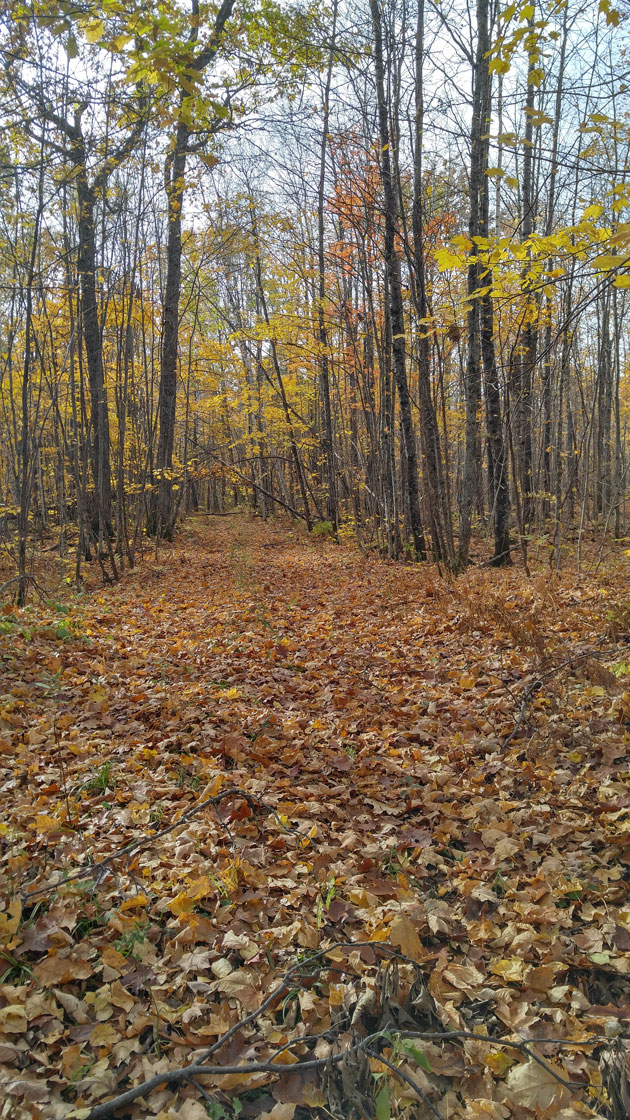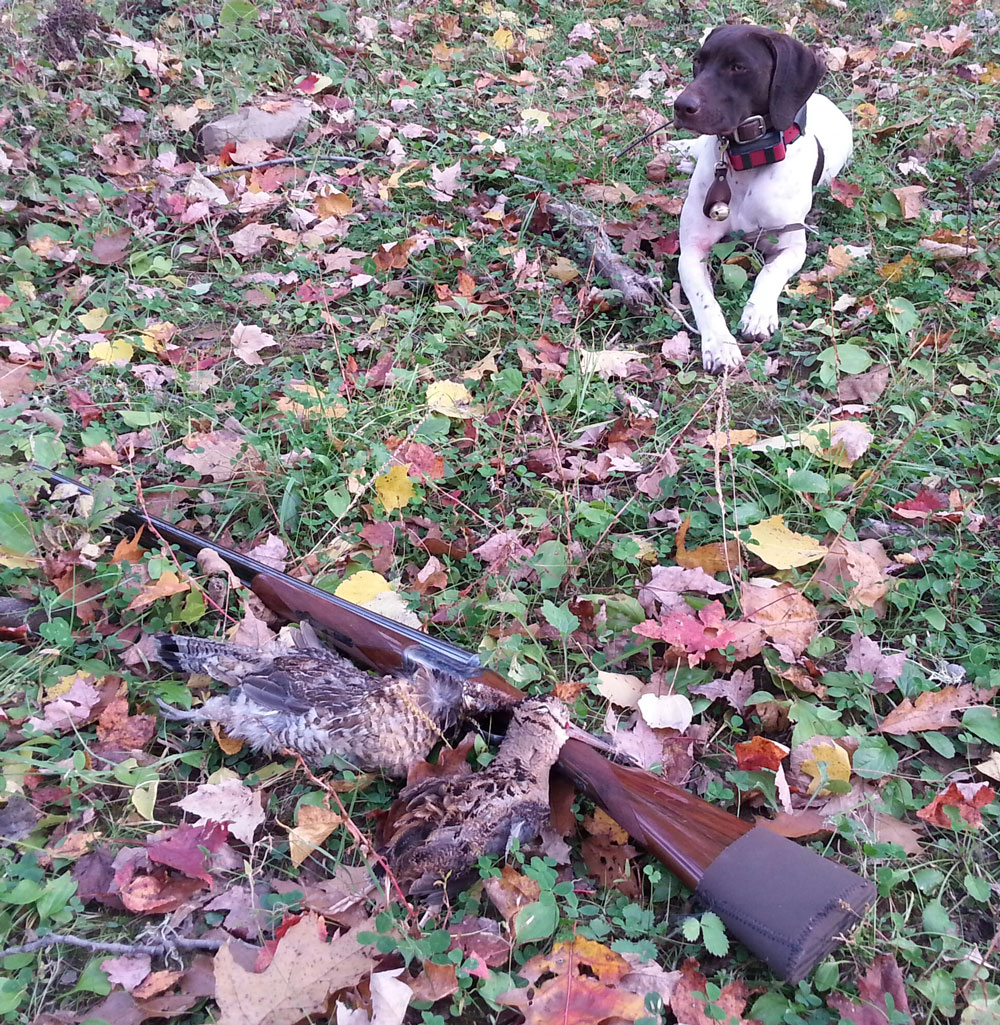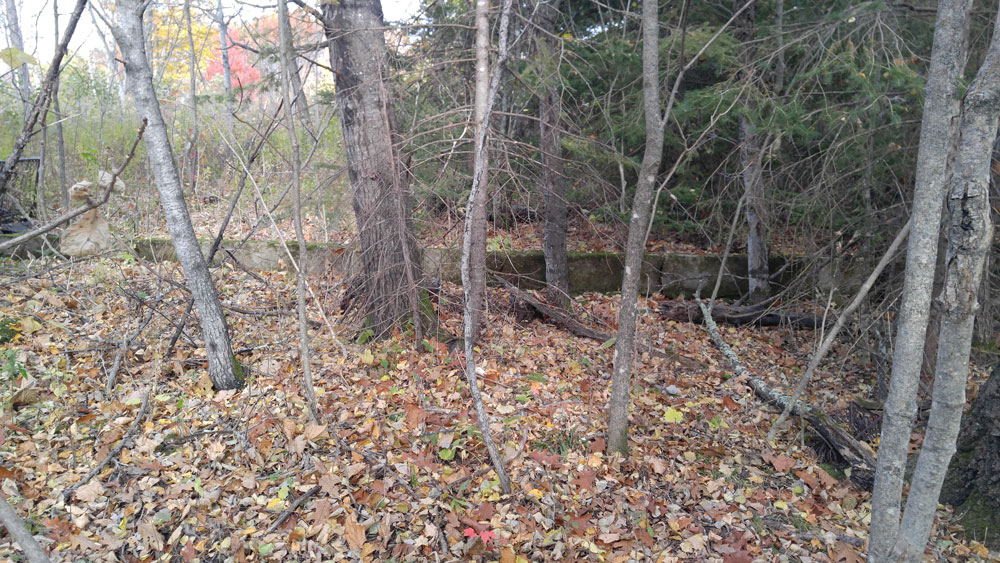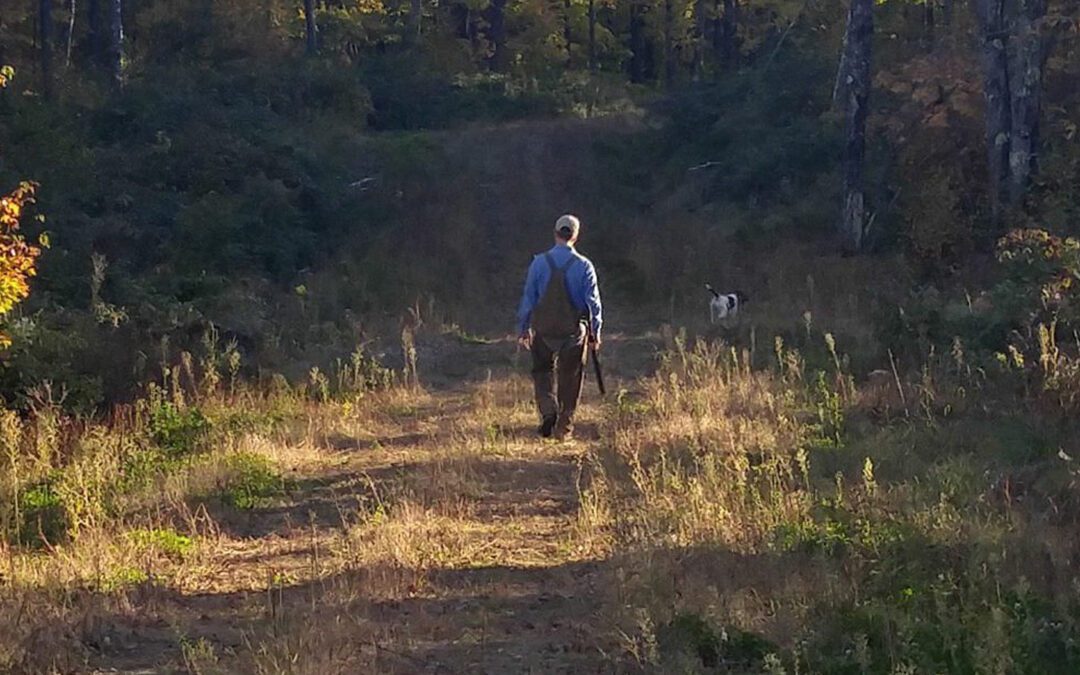Like a lot of little family customs, it had its roots in necessity. The first time we came to this part of Wisconsin, I brought two dogs, Gretchen and a much wider ranging shorthair named Penelope. We hunted hard for a week that year, and by the time the last day rolled around, Penelope was scratched and sore from blasting her way through miles of thorny thickets and deadfall. Gretchen, on the other hand, had a few nicks and scrapes, but owing to her closer-working running style, she was still willing and able to make one more hunt. After that it became standard practice that Gretchen gets the last hunt of the year.
It had taken some work to locate Repke’s Farm. Readers of the late Gordon MacQuarrie will recognize the name from his story “Weary Weekend,” in which he describes a series of opening-weekend bird hunting adventures. In the story, he mentioned that the farm was located off of County Highway M but left out any other details. Fortunately, after asking around, I found a very helpful local that was willing to dig through his collection of old plat maps and locate the property.
Gordon called the farm “one of God’s gifts to fanciers of the ruffed grouse”, and I assure you it is to this day. I know this because the property was later purchased by Douglas County and, like the vast majority of county-owned land, is open to public hunting.

The woods around Repke’s Farm are lovely, dark and deep.
As we started off down the old road, long since abandoned and grown over with brome grass and patches of clover, Gretchen had already settled into her usual routine. We had just made it around the first bend when I noticed she was on to something. She dropped her head, started wagging her normally ramrod-straight tail, and took off over a berm of dirt and rocks that had been pushed up while building the road years before.
As I crept around the edge of the berm, a grouse rocketed up in front of her and quickly pitched off to the left through a tangle of dogwoods. I took one quick snap shot, but the bird kept right on going. This happens, a lot. There are few birds that make for more difficult wingshooting than a grouse in the Northwoods of Wisconsin. Never flushing when or where you think they will, they twist and turn through the trees like feathered jets. After a little searching around to make sure the bird really got away, Gretchen popped up on a log, looked at me as if to shrug and say, “You missed it, boss,” and headed up the trail.
Another mile or so up the road, where it makes a sharp hairpin turn, we left the trail and followed the edge of a narrow, marshy bog. This area is usually good for a grouse now and then, and woodcock often feed in the softened earth among the tag alders. After a hundred yards or so, Gretchen’s bell fell silent. I hurried a little, jumping from one mossy hummock to another, until I could see her frozen in a perfect point. She shivered with excitement, and I could tell from her unblinking eyes that she could see the bird on the ground in front of her. A little skein of drool dripped from her jowl—Gretchen sometimes does that when she gets nervous or excited.
I took another step and the grouse exploded in a whirr of wings and sound. It hadn’t really known I was there, having been busy concentrating on the dog; so, as often happens, it headed straight at me. It was so close that I could see its little black eyes as it zipped past at what seemed like the speed of sound. I twisted around and fired, missing with the right barrel then connecting with the left. The woods were suddenly quiet again, and all that was left of the incident were a few drifting feathers that slowly settled to the forest floor.
Gretchen immediately ran to the spot where the grouse had disappeared. I looked around for a few seconds, then about 15 yards further on I noticed her circle a spot in the undergrowth. She had found the grouse, and soon returned with it in that proud, prancing gait she always uses on a retrieve, dropping the beautiful brown-phase bird in my hand. I smoothed its ruffled feathers and marveled at its natural camouflage. I always feel a little sense of accomplishment when the dogs and I manage to take a ruffed grouse. They are a creature of the wilderness. We have never really been able to subjugate or propagate them the way pheasants, quail, and others are. You have to earn your grouse.

The author and Gretchen certainly earned this grouse and woodcock.
From there, we continued up the rise to where the logging road meets an old aspen cutover. Along the way, Gretchen pointed a pair of woodcock at an unlikely spot in the hardwoods and made another beautiful retrieve. In places, the thorn bushes were thick and she fell in behind me, letting me break trail until the cover opened up again. As we neared the top, she quickly cut away to the right. I found her behind a screen of trees, sniffing around what is left of the old homestead. It must have been a beautiful little farm in its day.
A cracked concrete foundation marks the spot where the house once stood, and there’s a large hole in the ground, undoubtedly the remains of the root cellar. Tools were scattered about, and the woodstove lay in what must have been the kitchen. I wondered what had become of the family that lived here. Why had they abandoned such a place, and why did they leave so much behind?
Along the back edge of the yard, a solitary, unkempt apple tree marked the spot where the Repkes had planted it so long ago.
Ironic, I thought. The house and other buildings are gone, but the beautiful garden lives on.

Only the foundation remains of the old Repke farmhouse.
I looked around for a few minutes, trying to find the old well where MacQuarrie and Mr. President drank after the long and dusty hike back to the farm. Then, without any warning, Gretchen pointed a grouse behind a small, shrubby oak. I moved in slowly and had an unusually open shot, the bird falling among the leaves near the base of the apple tree. Gretchen was at the spot when I got there, so I took the water bowl from my vest, gave her a long drink, and plucked an apple from the tree. I cut it in half and gave one piece to Gretchen—she loves chewing on a good apple now and then.
There was one more spot we needed to hunt. It is the bit of cover that makes this such a special place, Gretchen and I having found it together on that last-day hunt years before. It is not special because it holds birds, for it usually does not; it is special for another reason.
To get there, you must follow the old trail through the open meadow on top of the sandy hill. On the far side of the opening, the trail drops down the back side of the ridge through a stand of hardwoods dotted with ancient pine trees that somehow managed to escape the axe when the area was logged in the early 1900s. At the bottom, the trail turns south along the edge of a creek, a small offshoot of the St. Croix River. The water there is dark with the tannin of a billion leaves, and it splashes merrily over little bedrock outcrops that are older than time itself.
At the spot where the road turns back towards the creek, you can still see the remains of the logging dam where Gordon sat, listened to the water, and soaked his tired feet on that opening day so long ago. I leaned my old double against one of the maple trees and sat in the golden leaves while Gretchen explored the creek bank. I thought about the previous two weeks, the countless miles I had spent following the dogs, the old covers we had revisited and the new ones we had discovered. I thought how unlikely it was, after so much time had passed, that this small corner of Wisconsin was still much as it had been 80 years ago and how lucky I was to be able to walk in Gordon’s footsteps and share a little piece of his world.
After a while, with that sense of melancholy that comes at the end of any great experience, I whistled to catch the dog’s attention and turned back the way we came. As we approached the spot where the truck was parked, I snapped a leash on Gretchen’s collar, not wanting her to end up on the paved county highway. We had only taken another few steps when a grouse flushed from the side of the road and flew directly away, providing an easy shot had I not been leading a dog with one hand. I watched it sail away, looking back at me like grouse often do.
I like to think Gordon had a good laugh out of that!

